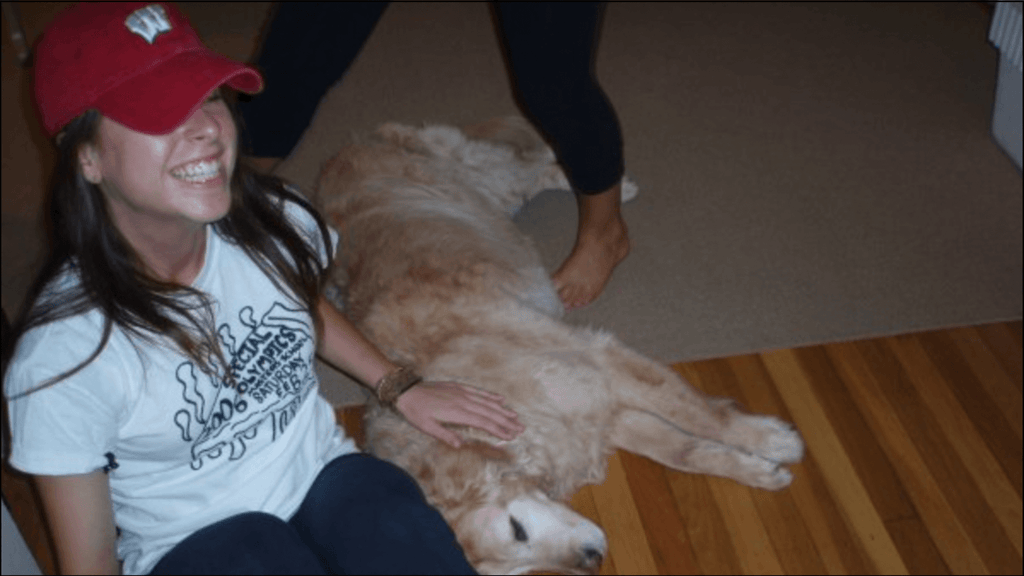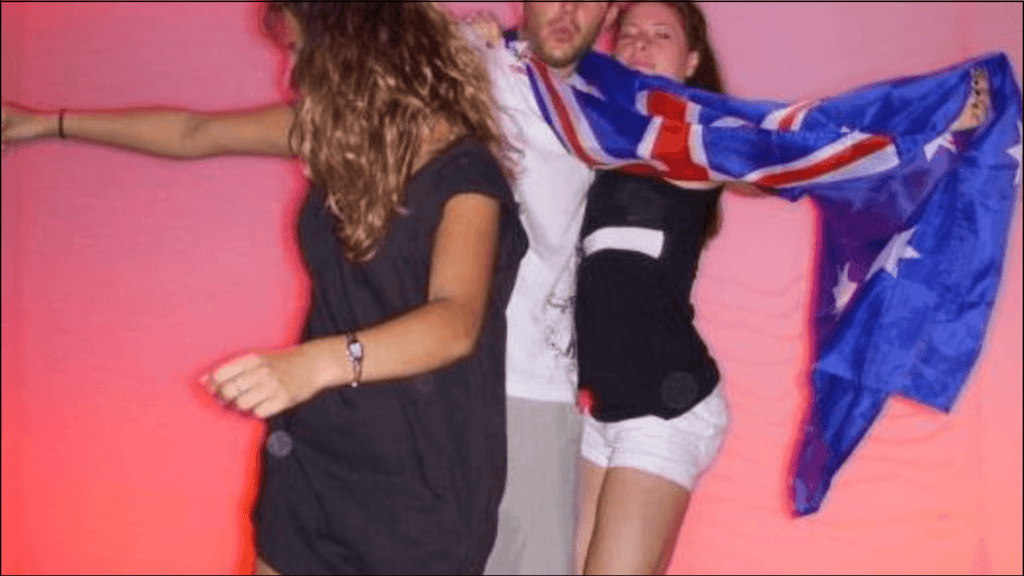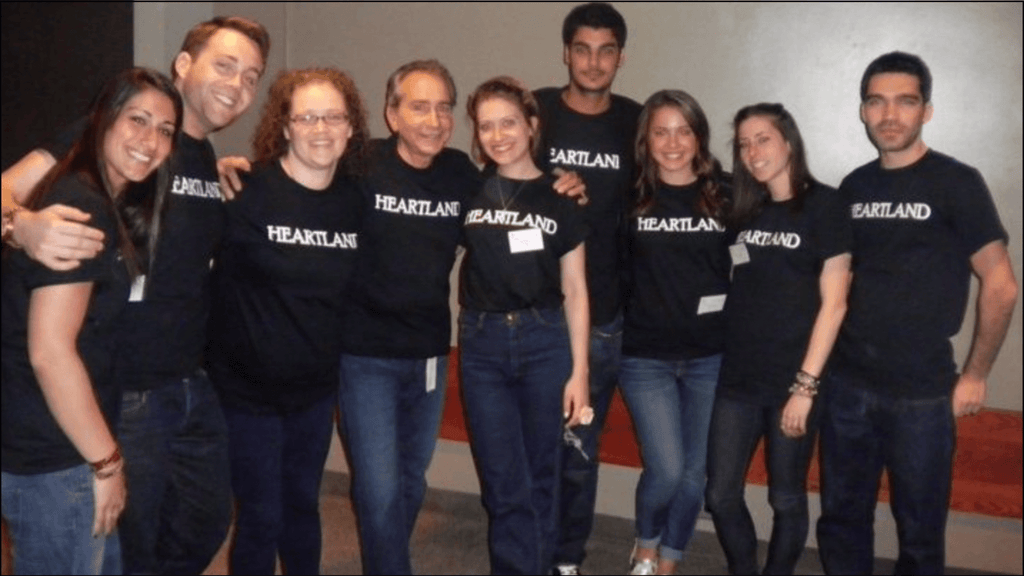Thinking about starting a career in fashion? This is everything I wish someone had told me about jobs in the fashion industry.
Back in 2004 when I was applying for colleges and trying to figure out what I was going to do with the rest of my life, I didn't realize that there are jobs for all different personalities, talents, and abilities in the fashion industry. For some reason, I thought “designer” was the only job in fashion. I have never been particularly artsy, and don’t know how to sew, so working in fashion never felt like a real option.
I think sometimes when we are young, starting college and deciding what we want to do with the rest of our lives, or even when we are older and thinking about a career change, we put ourselves into very broad categories, like a lawyer, doctor, or fashion designer.
Before I help you decipher all the different types of careers in the fashion industry, and give some guidance on what might be the best fit for you, I’m going to tell you how I eventually found my way into the industry. It took me 6 years, a lot of trial and error, and 3 different colleges, to find something I really wanted to do everyday.
The College Years

Me getting ready to head off to Wisconsin
When I started applying for college my senior year of high school, I had no idea what I would study or become. What I really wanted was to take a year off and travel. But, nervous I would never go back to school, my parents said no to that.
After growing up in a super small town, (my graduating class was a little over 100 people, most of whom I had known since I was 5) my only requirements for a university were one, big, and two, far away.
The University of Wisconsin - Madison and Miami University (the supper preppy one in Ohio) were the two highest ranking colleges I got into. In the town I grew up in there was a lot of pressure to go to the best school possible, whatever that means. Since I had no idea what I wanted to do, and tbh, didn’t really want to go (yes, I understand the white privilege here and have made peace with it) I flipped a coin.
Dropping Out Of School
I started my college career at the University of Wisconsin - Madison in the fall of 2005. My hope was that I would take a lot of different kinds of courses, and hopefully something would click. In 2007 I dropped out of school, still no closer to figuring out the question that every adult loves to ask - what are you going to be?. By the way, I had a 3.4 GPA, so poor grades, drugs, or any other rumors that tend to fly around when a kid leaves college were not applicable. I just didn't see the point in staying when I had no idea what I was doing there.
During those two years I took classes in everything. Business and economics, advanced calculus, I dabbled with pre-med classes like chemistry incase maybe I would want to become a doctor, and even for a bit was thinking about becoming a botanist. It was all interesting, but nothing ever felt like wow this is awesome, this is what I want to learn about all the time.
I did well in math and economics classes which were pre-recs for the business school. But, something about business always felt too stuffy and intense. I looked at the students who wanted so desperately to get into the business school (one of the best in the country), already burnt out at the age of 19. And, although academically I was a strong candidate, something inside me felt like I didn’t belong there with them. The same was true for the science courses I took. I was doing well enough to get a degree, but something inside me was like, nah, I don’t want to.
Traveling

Me in Australia "studying" ;)
Spoiler alert. Yes, I spend a lot of time in India. But a trip to India is not what changed my life. I'm not that cliche.
But, there is something to be said for traveling alone. During my time in Australia I met a lot of new people from all different walks of life. Rye and Madison were both pretty white-washed, affluent, and Stepford Wife-ish. These new people challenged me to think about things differently. And, being completely alone for the first time ever, gave me a lot of time to get to know myself. I began to realize the types of things I naturally gravitated towards and what made me happy.
I remember when I first arrived in Australia, I was so freaking excited to go shopping. Even to this day, I love shopping for clothes and food in other countries, checking out all the different stuff you can’t find anywhere else. No joke, I think I could spend an entire vacation in a grocery store.
And, when I was in Australia (this is back in 2008), I loved following all their fashion trends. At that time, especially in the Gold Coast, everything was heavy 90’s, I felt like I was living in “Saved By The Bell”.
Something clicked. The hours that I spent getting ready for school every morning finally made sense. I woke up early every morning, because I enjoyed putting different outfits together.
Applying To Fashion School

Me and my friend Katie in the FIT testing lab - I have no idea what we were doing here.
In the back of my mind, I always dreamed about working in fashion but never thought it would be possible because of my lack of design skills. If someone would have told me that not being able to draw didn’t matter, I probably could have saved myself a lot of time and school tuition. But, sometimes you have to take the journey to end up where you are meant to be.
I started doing a bit of research and found out there is a special type of business degree that focuses specifically on the fashion industry, merchandising. Ok, this is cool. I flew back to NYC the next fall to enroll at The Fashion Institute of Technology’s FMM associates program, Fashion Merchandising and Management.
Things were starting to finally fall into place. Part of the curriculum was taking an Intro to Textiles course. Every student I spoke with all said the same thing, it was the worst class. And, I remember thinking that it was going to be the most boring class in the world - 3 hours talking about fabric. How is that even possible?
The World Of TDM

My senior project group at FIT
I’m sure you know how the story ends. I ended up loving it. After my associates in FMM was complete, for my bachelors I made the change over to Textile Development and Marketing, aka, TDM.
Finally, I found my thing. And, do you know what? It made sense. I was never going to be a fashion designer. Well, I mean I could be, but definitely not a very good one. And, the business side of things had always felt too dry and serious to me.
And, you know what?
The reason I was drawn to textile development is because it plays to my strengths (math and science; textile development is technically engineering), but still, let me be creative and be part of the fashion industry world.
Learn From My Story
Don’t waste the time I did. If you love fashion, but feel you aren’t creative enough, believe me, there is a place in this industry for you! And, if you are thinking about switching careers, do it! It’s never too late.
Here are the jobs in the fashion industry that you might not know about, byt need to.
Designer
There are actually different kinds of designers - not just the Project Runway kind.
Apparel Designer
If you want to be a designer, and design clothes, you need to pick a specialty. All designers need the same basic skills, and understanding of sewing, pattern making, and garment constructions. As well as the ability to sketch and turn ideas that are in their heads into something on paper.
Here are a few designer niches....
Mensware
Menswear is the fastest- growing segment of the fashion industry. And, succeeding in this space is more than just creating the perfect work shirt, this is because being a menswear designer is more than just designing a few pieces of clothing. It’s about putting together a cohesive line that can be mixed and matched. The most talented menswear designers are able to curate a brand that becomes a one-stop shop for men.
Womenswear
Ok, there are even more specialities within the category of womenswear....
Sportswear/Ready To Wear
If you want to design for brands like Rag + Bone, Lululemon, or even the Gap. The general concentration of sportswear and ready to wear is where you should start your career.
Intimate Apparel
Intimate apparel is more than bras and panties. The category also is responsible for shapewear like Spanx and swimwear. One of the most important skills in intimate apparel is understanding stretch fabrics, and being able to specially craft patterns to work with these special highly technical materials.
Knit Wear
No, you won’t be knitting with needles in a rocking chair like a granny. Have you heard of full fashion knitwears machines? They are pretty cool. Stoll is one of the most famous manufacturers of these knitting machines. A knitting pattern is programmed into the machine and a fully made sweater literally pops out. The world of knitwear is cool if you are creative, but also like very technical work.
Haute Couture
Are you obsessed with red carpet looks, the finest fabrics around, and made to measure clothing? Haute couture places a special emphasis on high-level pattern making for clothes that hug that body just right, a strong understanding of luxury textiles, and precision hand sewing skills.
Children's Wear
Kids wear is complex. There are a lot more legalities and regulations when importing children's clothing. Because of this a special emphasis on testing and quality assurance is needed. Many people enjoy the world of kids wear because it tends to feel a little less The Devil Wears Parda.
Textile Surface Design
Welcome to the world of prints and color. A textile surface designer designs prints for fabrics for not only clothing but home goods as well. Did you know that print designers often use vintage wallpaper and upholstery as inspirtation? This is because vintage prints usually don't have any copyright regulations. For this career, you need a strong understanding of color and color theory. And, an understanding of the difference between inspiration and knocking something off. Most of the work you will do will be in Adobe Illustrator and Photoshop.
Packaging Designer
Someone needs to design all of the stuff that your purchases come in. From boxes, to bags, even tissue paper, special designers create it all. The world of packaging is important, it protects the things we buy from getting ruined before they get to us. But, recently the industry has been getting a lot of attention because most packaging ends up in landfills. Packaging design can make or break a brand, and today that has deep routes in sustainability.
Visual Presentation + Display Design
Did you always dream of designing and decorating department store windows at Christmas time? How about year round? Visual presentation and display is about creating an in store experience using decorations.
This profession might be perfect for you if your favorite part of a party is the decorations.
Accessories Designer
Shoes
It’s not all Louboutin. Did you know that part of the process of becoming a shoe designer is an in-depth working knowledge of the anatomy of the human foot? And, that makes sense. If you are designing something to walk in, it’s important to understand how the foot works.
Jewelry
Did you love studio art, or shop class growing up? I took a jewelry design class at FIT as an extracurricular course. It was so much fun, but a lot of hard work. The class felt more like the woodworking class I had to take in high school than fashion.
Crafting jewelry is like fine art or sculpture. When you learn about jewelry design you will learn how to make sketches, molds, and casts of designs. You will also need to become an expert in gemology, where you will learn about different stones and what makes them rare and expensive.
Makeup
Cosmetology is not exactly a job in the fashion industry, but it is extremely important to the world of fashion. From runways to photoshoots, makeup and fashion intertwine. Makeup trends and fashion trends inspire one another, each augments the other. The world of makeup isn’t just applying it to peoples faces, it’s researching trends, creating new looks, and even learning how to craft formulas for your own products.
Textile designer / Engineer
Do you freaking love science? Think about one of these fashion industry jobs. Maybe I am biased, ok, I definitely am, but this one is my favorite - Textile Development. Learn about knits, wovens, chemistry, dye, prints, product development, production, and quality assurance. There are people in fashion that specialize only in buying womens woven shirting fabrics, or only in dying different colors in dye houses. If you want to learn more about textiles, and all the doors and jobs in the fashion industry this speciality can open up, check out virtue + vice’s textiles 101 course, or email us.
Technical Design
Love math? Tech pacs and specs are a crucial part of the product development and production cycle. They are essentially a set of instructions that lets the factory know how every little stitch, seam, and detail is supposed to be done, and what everything should measure. If you have crazy attention to the smallest details, a career in technical design might be your calling.
Pattern Maker
Being a good pattern maker is all about math. Pattern makers understand how fabrics move and the human body, and then use math equations to turn a designers sketches into reality.
Fashion Merchandising
Business minded? Have you always felt like you had a sixth sense when it comes to fashion trends? Then fashion merchandising might be for you. This career analysis past trends, and projects what customers will want next season.
Sales
Are you a people person? Then maybe the counterbalance to merchandising is what you should try. The world of sales - working with fashion brands to get their products into stores.
Sourcing
Are you always cutting a deal? Think about the world of sourcing. When I would source for fast fashion companies I would sometimes negotiate to the ½ penny… hey, that adds up quickly when you are making millions of pieces.
Public Relations
Social butterfly? Most companies when they reach a certain size need someone to manage their public image. PR, especially in the world of fashion, is fast paced. If you are the type of person that likes putting out fires, and unpredictability this might be for you.
Event planner
Life of the party? Guess what? Fashion week is just one giant event. In the world of fashion, there is always a reason to have a party. And, you could be part of making those happen.
Stylist
This is another popular job when most people think about jobs in the fashion industry. The secret to being a great stylist isn’t just having style. It’s understanding your customer. What do they want, and feel comfortable in? The true art of styling takes that into consideration and makes the client's vision even better.
Museum Curation
History buff? Fashion goes back to around the time man discovered fire. And has been evolving and changing ever since. If you love history and antiques, a career in museum curation might be worth looking into
Writer
Bookworm? Become a writer or editor at one of your favorite publications. This career requires a degree in journalism, and is a lot of fun because writers usually are the first to see new trends and always get the best fashion week invites.
*** Sustainable Fashion***
I get a lot of students emailing me and asking how to find a job in sustainable fashion. The thing is, most brands that are sustainable and ethical are really small and probably not hiring. If they are, most of them severely underpay.. Ironic huh?
The advice I give to people who want to work sustainably in fashion is to take any job, then make it sustainable. When I worked in fast fashion as a Director of Product Development I got to choose how we would develop fabrics, what mills we worked with and ultimately what factories we placed our products in. If a supplier was doing something I didn’t like, I didn't work with them
What the fashion industry really needs for change are sustainable and ethical ninjas People that are working for mainstream companies but helping them to become more sustainable and ethical, even if it’s just one t-shirt at a time.

Leave a comment